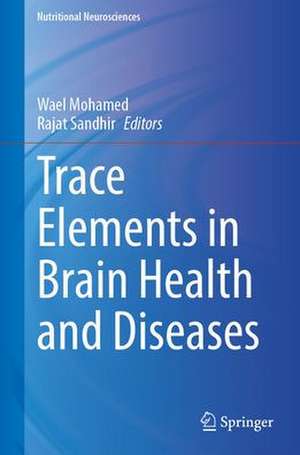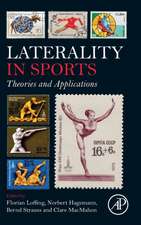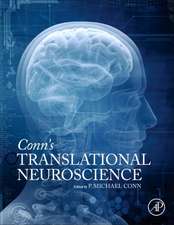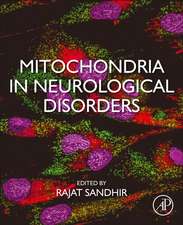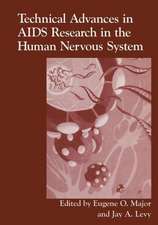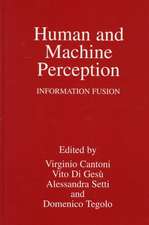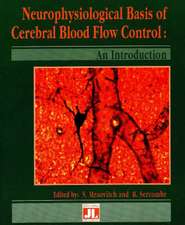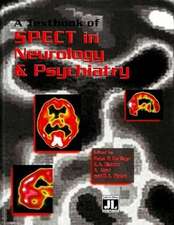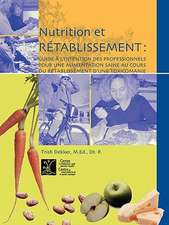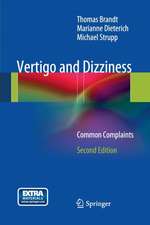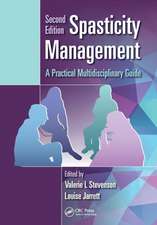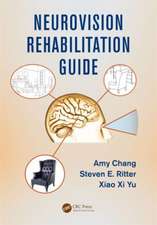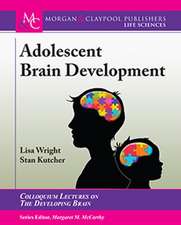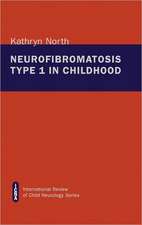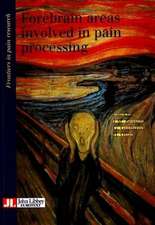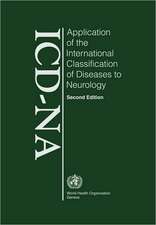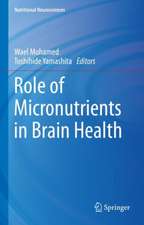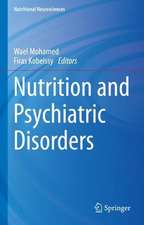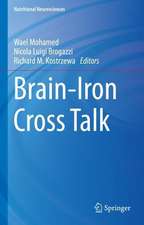Trace Elements in Brain Health and Diseases: Nutritional Neurosciences
Editat de Wael Mohamed, Rajat Sandhiren Limba Engleză Hardback – 11 iun 2023
| Toate formatele și edițiile | Preț | Express |
|---|---|---|
| Paperback (1) | 1035.07 lei 38-44 zile | |
| Springer Nature Singapore – 11 iun 2024 | 1035.07 lei 38-44 zile | |
| Hardback (1) | 1158.26 lei 6-8 săpt. | |
| Springer Nature Singapore – 11 iun 2023 | 1158.26 lei 6-8 săpt. |
Preț: 1158.26 lei
Preț vechi: 1219.22 lei
-5% Nou
Puncte Express: 1737
Preț estimativ în valută:
221.66€ • 230.56$ • 182.99£
221.66€ • 230.56$ • 182.99£
Carte tipărită la comandă
Livrare economică 14-28 aprilie
Preluare comenzi: 021 569.72.76
Specificații
ISBN-13: 9789819915125
ISBN-10: 9819915120
Ilustrații: XV, 168 p. 1 illus.
Dimensiuni: 155 x 235 mm
Greutate: 0.44 kg
Ediția:2023
Editura: Springer Nature Singapore
Colecția Springer
Seria Nutritional Neurosciences
Locul publicării:Singapore, Singapore
ISBN-10: 9819915120
Ilustrații: XV, 168 p. 1 illus.
Dimensiuni: 155 x 235 mm
Greutate: 0.44 kg
Ediția:2023
Editura: Springer Nature Singapore
Colecția Springer
Seria Nutritional Neurosciences
Locul publicării:Singapore, Singapore
Cuprins
Chapter 1: Dietary Iron and brain development,- Chapter 2: Trace elements and brain function/MCI.- Chapter 3: Nutrigenomics and Trace Elements: Hopes and Hypes for Parkinson Treatment.- Chapter 4: Putative role of trace elements deficiency in psychiatric disorders including depression.- Chapter 5: Trace elements and neurodegenerative diseases.- Chapter 6: Edible Bird’s Nest: Seeing the Unseen.- Chapter 7: Trace elements and epilepsy.- Chapter 8: Blood markers of oxidative stress in patients with ALS.
Notă biografică
Dr. Wael Mohamed Yousef Mohamed is a Clinical Pharmacologist, Neuroscientist and Psychiatrist. Dr. Mohamed got his PhD from PSU, USA and is currently working as an Assistant Professor in IIUM Medical School, Malaysia. He published over 70 peer-reviewed papers related to Neuroscience/Psychiatry. He is an editor of the Frontiers in Neurology, and PLOS-ONE Journals Additionally, he has edited few books in neuroscience field with Springer and Cambridge. He has received many research grants from national and international organizations namely, IBRO, ISN, MJF, STDF, FRGS and INDO-ASEAN.
Professor Rajat Sandhir has received his M.Sc and Ph.D. degree in Biochemistry from the Postgraduate Institute of Medical Education and Research, Chandigarh, India. Presently he is working as a Professor at the Department of Biochemistry, Panjab University. His research interests are focused to understand the biochemical and molecular mechanisms involved in development of neurodegenerative conditions like metabolic encephalopathies, dementia's and motor disorders with a particular interest to investigate the role of oxidative stress, mitochondrial dysfunctions and alterations in permeability of Blood-Brain-Barrier. In addition, his interest is also to identify neuroprotective strategies that ameliorate neurodegenerative conditions. His group is also interested in understanding role of trace elements in brain particularly selenium during early development. He has over 200 research articles to his credit and has been on the editorial board of several international journals. He is also Fellow of Indian Academy of Neurosciences and Indian Association of Biomedical Scientists (IABMS). He has recently been awarded KT Shetty Memorial Oration 2021 by the Indian Academy of Neurosciences. He has been listed among the World 2% Scientists for the year 2020 released now by the Stanford researchers from Panjab University.
Professor Rajat Sandhir has received his M.Sc and Ph.D. degree in Biochemistry from the Postgraduate Institute of Medical Education and Research, Chandigarh, India. Presently he is working as a Professor at the Department of Biochemistry, Panjab University. His research interests are focused to understand the biochemical and molecular mechanisms involved in development of neurodegenerative conditions like metabolic encephalopathies, dementia's and motor disorders with a particular interest to investigate the role of oxidative stress, mitochondrial dysfunctions and alterations in permeability of Blood-Brain-Barrier. In addition, his interest is also to identify neuroprotective strategies that ameliorate neurodegenerative conditions. His group is also interested in understanding role of trace elements in brain particularly selenium during early development. He has over 200 research articles to his credit and has been on the editorial board of several international journals. He is also Fellow of Indian Academy of Neurosciences and Indian Association of Biomedical Scientists (IABMS). He has recently been awarded KT Shetty Memorial Oration 2021 by the Indian Academy of Neurosciences. He has been listed among the World 2% Scientists for the year 2020 released now by the Stanford researchers from Panjab University.
Textul de pe ultima copertă
This book reviews the role of trace elements in brain development, function, metabolism, and neurodegenerative disorders. It explores the molecular mechanisms of the effects of trace elements on metabolic pathways, mitochondrial nutrients, neurodegeneration, Central Nervous System (CNS) disorders, cell signaling, and neuronal functions. The book also discusses transport mechanisms of trace elements within CNS and their impact on neurotransmitter biology. Further, it examines the deleterious effects due to dyshomeostasis of trace elements in the central nervous system (CNS), resulting in damage to neurons and glial cells through the generation of reactive oxygen species and oxidative stress turn leading to neurodegeneration and neurological dysfunction. The book also explores the putative role of trace element deficiency in psychiatric disorders, including depression, and the imbalance of trace elements on neuronal genomic stability.
Caracteristici
Reviews the influence of trace elements in brain development and function Examines the role of trace elements in the pathogenesis of CNS diseases Discusses dyshomeostasis of trace elements and genomic instability in neurons
